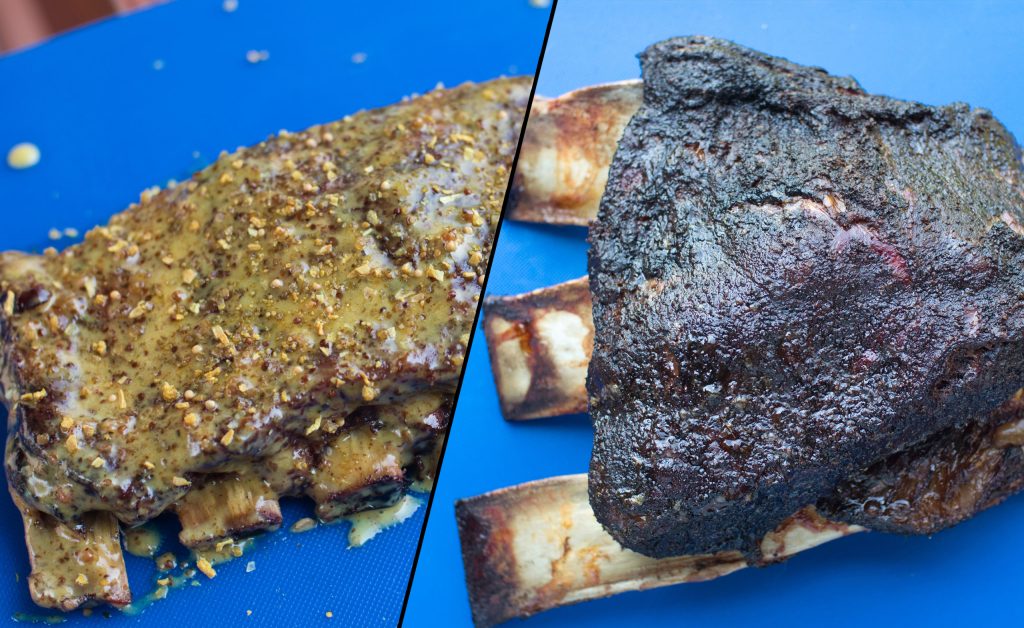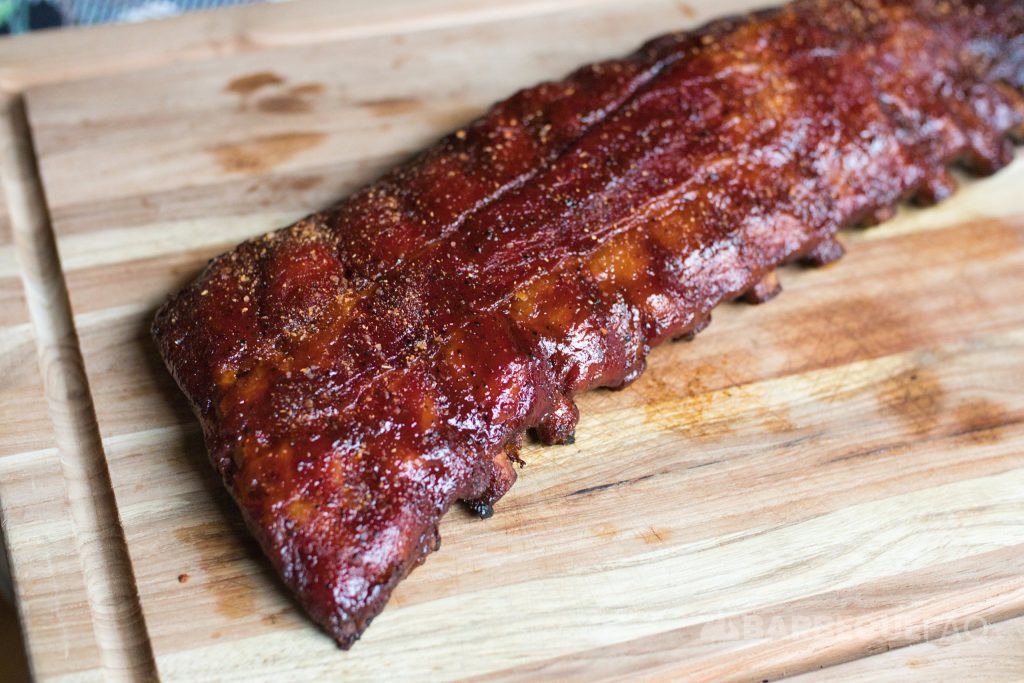Generally:
- Pork Ribs = Fruit woods like cherry, apple, peach.
- Beef Ribs = Oak or nut woods like hickory/pecan.
I like post oak with beef and cherry + pecan with pork.
1. Cherry Wood Gives Pork Ribs an Awesome Red Color
Rather than using Paprika in your dry rub, just use cherry wood.
The rub for the ribs below is just salt, pepper, and garlic.
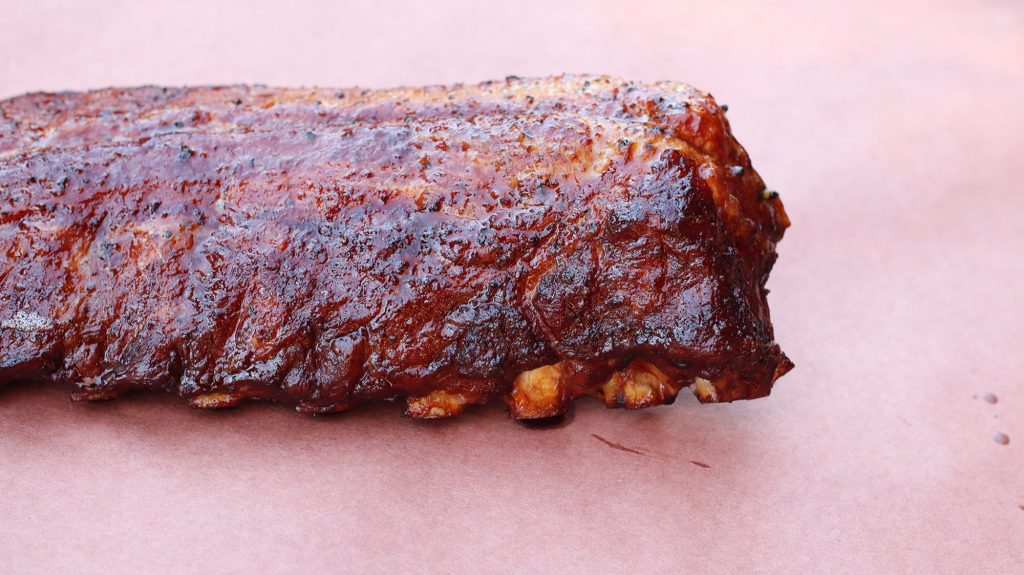
Almost all barbecue recipes on the internet will tell you to use paprika in the dry rub.
But in most cases the paprika being used is super low-grade that has no flavor and is solely used for color purposes; I mean this fact so much that I wrote an article on this ingredient.
I know lots of people also like Apple with pork but I think:
- Cherry actually tastes and smells sweet
- Cherry gives the meat better color
- The smoke flavor is stronger
If you like more smoke, I’d suggest mixing cherry with pecan.
2. Pecan is the One of the Only Nut Woods I Use
Pecan works great with ribs – it also doesn’t tend to burn as long as Hickory or Oak which is perfect for shorter cooks (like ribs).
A big issue with using just cherry is that the smoke is pretty subtle.
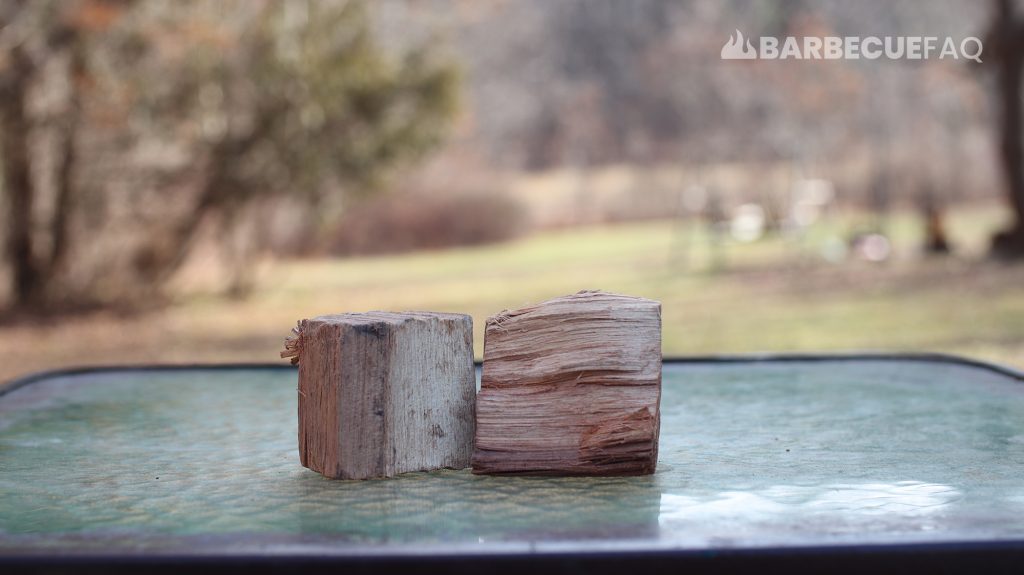
To get around this, you can mix cherry for the color and sweet smoke and add some pecan for a more punchy smoke flavor.
It’s not nearly as strong as using wood labeled “hickory” (technically pecan is a species of hickory) or mesquite but it’s also more on the nose than any fruit wood.
Post Oak is Typically the Best for Beef
Post oak is traditional to Central Texas barbecue.
It’s also pretty mild; I’d say it’s stronger than fruit woods but lighter than hickory or pecan.
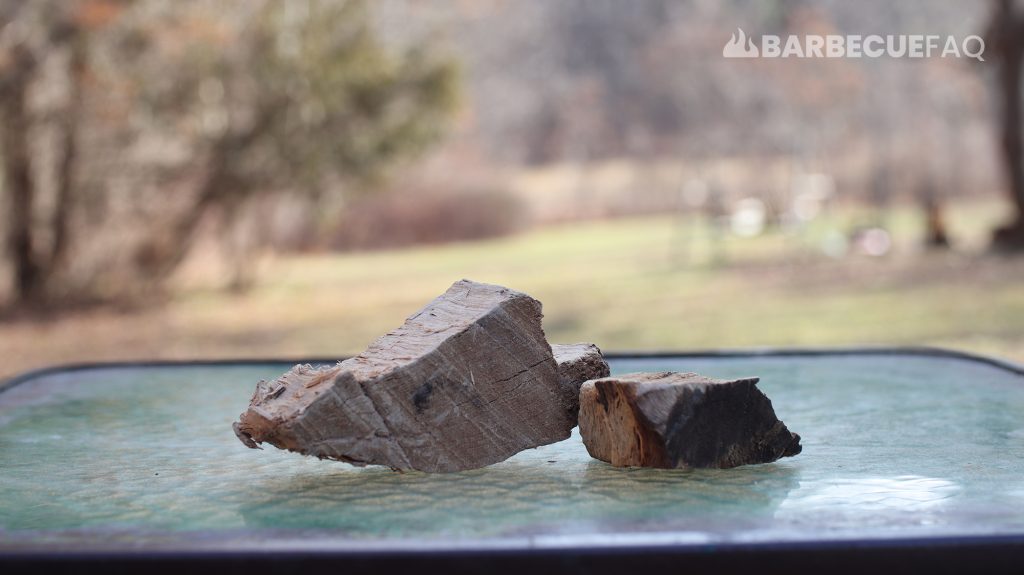
If you’re smoking beef or pork ribs for someone who likes smoke but finds Pecan and Hickory too strong, Oak is a great middle-ground.
Oak can pretty much go with any BBQ food: Ribs, Poultry, Fish, etc.
Of the woods it’s the safest bet for quite literally any meal.
A Quick Word About Hardwood Smoke Flavor
A lot of resources for barbecue tend to lead beginners in the wrong direction. Often they’ll create resources – much like this article – and essentially tell the reader to use X Species of wood with Y type of meat.
Truth be told, “smoking” meat doesn’t really work like that. More or less, wood smoke exists on a spectrum from mild to strong.
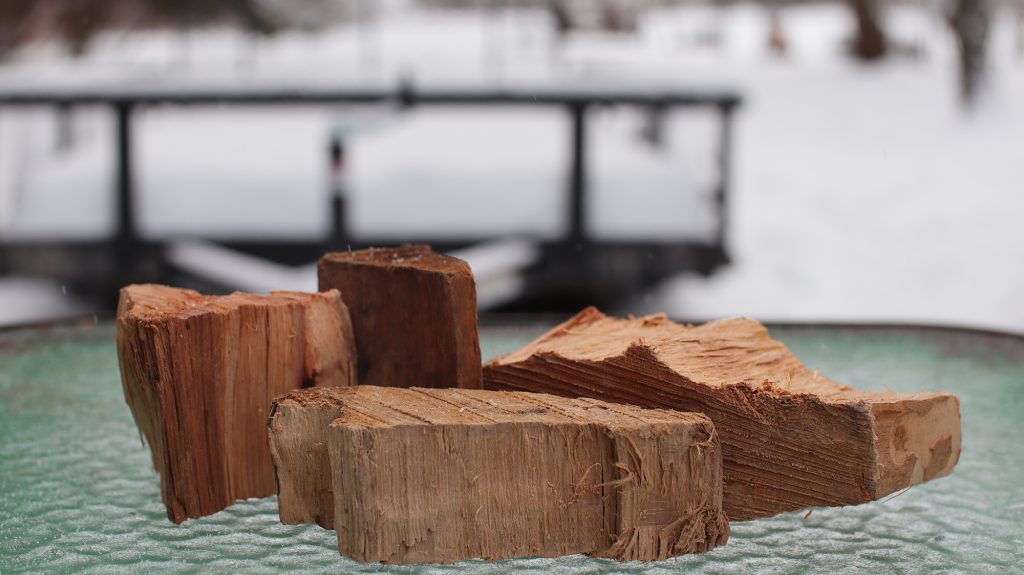
Mild woods include fruit-woods like apple, cherry, and peach.
In the middle lies oak, pecan, and hickory.
At the end of the spectrum is mesquite, which most people would call strong.
The articles on the web will then start to become super nuanced describing various “notes” like they’re a Sommelier describing wine.
Even more complicating is the fact that the chemical byproducts of wood combustion are not universal and depend on the species, age, and mineral composition of the soil.
Meaning, wood grown in New England will taste different than wood grown in California. The Forest Encyclopedia tells us that soil composition has the biggest impact on mineral composition.
There are also several different species of wood.
For example, Oak can include:
- white oak,
- red oak,
- black oak,
- etc.
Meaning, telling someone to use “Oak wood” doesn’t help you.
I think you get the idea.
Your goal should be to burn clean, thin blue smoke – that’s it.


